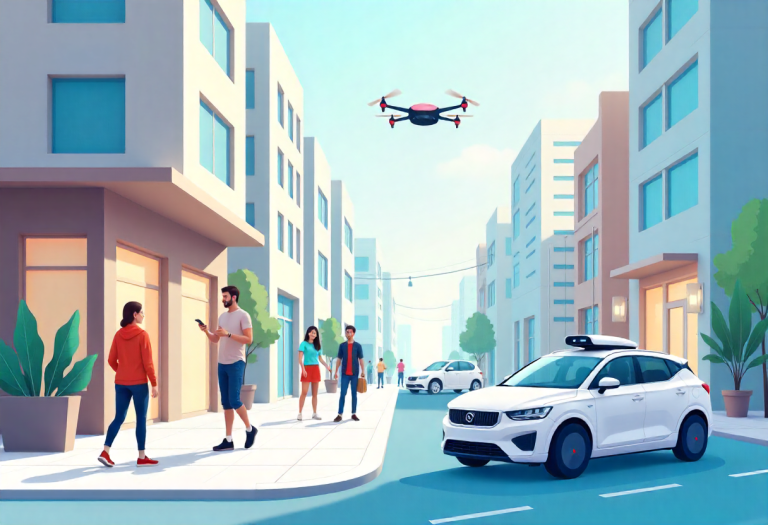Artificial Intelligence (AI) is no longer a futuristic concept — it’s here, and it’s deeply woven into the fabric of our daily lives. In 2025, AI has quietly revolutionized everything from how we communicate and shop to how we work, travel, and even receive medical care. What once felt like science fiction is now part of our daily routines, often in ways we don’t even notice.
1. AI in Communication
Think about how you communicate today. Smart assistants like Siri, Alexa, and Google Assistant understand your voice commands, answer questions, schedule tasks, and control your smart home devices. Chatbots on websites provide instant customer support, powered by natural language processing (NLP) — a major branch of AI. These tools help millions of people save time and access services more efficiently.
2. AI in Shopping and Entertainment
AI has reshaped how we shop online. When you browse Amazon, scroll through Netflix, or listen to music on Spotify, AI algorithms are behind the scenes learning your preferences. These platforms use machine learning to recommend products, movies, or songs tailored just for you. It’s a personalized experience that keeps getting better with every interaction.
3. Smart Homes and Automation
AI-powered smart home systems are changing how we live at home. From intelligent thermostats that adjust to your habits, to security systems that detect unusual activity — these innovations use AI to provide safety, comfort, and energy savings. In 2025, it’s not uncommon to find robotic vacuum cleaners mapping entire floors or refrigerators suggesting grocery lists based on what’s inside.
4. AI in Healthcare
Perhaps one of the most impactful uses of AI is in healthcare. AI-driven tools assist doctors in diagnosing diseases faster and more accurately. Apps can now monitor your heart rate, detect irregular patterns, and even remind you to take medications. Telemedicine platforms use AI to match patients with the right specialist in seconds. With the help of machine learning, medical research is also progressing at record speeds.
5. Transportation and Navigation
AI has made transportation smarter. Navigation apps like Google Maps use AI to predict traffic conditions and offer the fastest routes. Ride-sharing platforms match drivers and riders more efficiently. Even more exciting, autonomous (self-driving) cars are being tested and used in limited areas. These vehicles use AI to detect pedestrians, respond to traffic signals, and avoid collisions — making the roads potentially safer in the future.
6. Education and Learning
Education is undergoing a digital transformation, thanks to AI. Online platforms now use adaptive learning algorithms that analyze a student’s progress and provide customized learning paths. AI tutors can help explain complex concepts in a simplified manner, and virtual classrooms offer real-time translation, speech recognition, and automated grading — all powered by AI.
7. The Future Ahead
As we move forward, AI will continue to evolve. While there are concerns about job automation and ethical implications, there’s also great potential for AI to solve big problems — from climate change predictions to curing rare diseases.
The key is not to fear AI, but to understand and embrace it responsibly. By staying informed and aware of its capabilities, we can shape a future where AI enhances human potential rather than replacing it.
Conclusion:
Artificial Intelligence is no longer just a buzzword — it’s a powerful force changing how we live, work, and think. In 2025, we’re not just witnessing AI’s rise; we’re living it. Whether you realize it or not, AI is already part of your world — and it’s here to stay.
